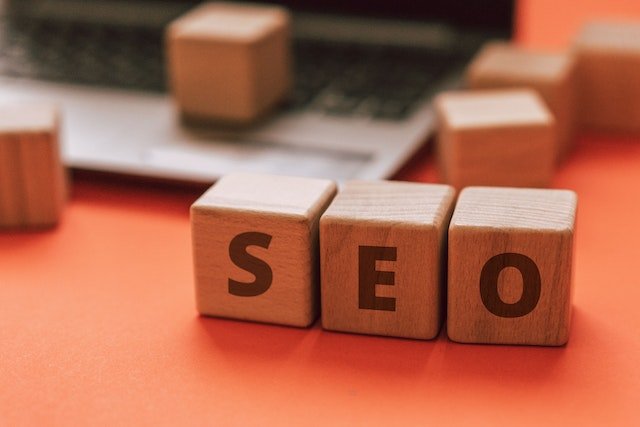Last Updated on January 11, 2026 by Rida Gul
Search Engine Optimization (SEO) is a critical aspect of digital marketing that can help businesses increase their online visibility and attract more organic traffic.
On-page SEO is one of the fundamental aspects of SEO, which involves optimizing the content and structure of a website to improve its search engine rankings.
In this article, we’ll cover the basics of on-page SEO, including why it’s important, and how to optimize your website for better search engine rankings.
Table of Contents
What is On-Page SEO?
On-page SEO is the practice of optimizing individual web pages in order to rank higher and earn more relevant traffic in search engines. This includes optimizing the content, HTML source code, and other elements on a page, such as images and videos.
The goal of on-page SEO is to make sure that a web page is optimized for both users and search engines, so that it can rank higher in search engine results pages (SERPs).
Why is On-Page SEO Important?
On-page SEO is important for several reasons, including:
- Improved Search Engine Rankings: On-page SEO helps search engines understand the content of a web page, and helps them determine how relevant it is to specific search queries. By optimizing your website for on-page SEO, you can increase your chances of ranking higher in search engine results pages (SERPs), which can drive more traffic to your website.
- Better User Experience: On-page SEO also helps improve the user experience by making your website more organized, easy to navigate, and user-friendly. By providing users with a positive experience, they are more likely to spend more time on your website and engage with your content.
- Increased Conversion Rates: A well-optimized website can also help increase conversion rates by making it easier for users to find what they are looking for and take action, such as making a purchase or filling out a form.
How to Optimize Your Website for On-Page SEO
Optimizing your website for on-page SEO involves several key elements, including optimizing your content, title and description tags, and UX signals. Here are the steps to follow to optimize your website for on-page SEO:
1. Keyword Research
Keyword research is the foundation of on-page SEO. It involves identifying the keywords and phrases that people use to search for information related to your business. You can use keyword research tools like Google Keyword Planner, Ahrefs, or SEMrush to identify keywords that are relevant to your business and have a high search volume.
2. Site Structure and Navigation
A well-organized site structure and navigation can help search engines and users easily understand the content of your website. Make sure your website is organized into categories and subcategories, and that the navigation is intuitive and easy to use.
3. URL Structure
Your website’s URL structure is also an important element of on-page SEO. Use descriptive and relevant keywords in your URLs to help both search engines and users understand what the page is about.
4. Image Optimization
Images are an important element of on-page SEO, but they also need to be optimized for search engines. Use descriptive alt text, captions, and file names for your images to help them rank higher in image search results.
5. Internal Linking
Internal linking involves linking to other pages on your website from within your content. This helps search engines and users understand the relationships between different pages on your website and can help improve your website’s overall search engine rankings.
6. Optimizing Your Content for SEO
Creating high-quality, engaging, and relevant content is essential for on-page SEO. When creating content, make sure to incorporate relevant keywords and phrases naturally throughout the content, and use headers and subheaders to organize the content into sections. Here are some other tips to optimize your content for SEO:
- Use short paragraphs and sentences for easy readability.
- Include relevant images and videos to break up the text and make the content more engaging.
- Use internal and external links to provide additional context and resources for the reader.
- Use variations of your target keyword throughout the content, but avoid keyword stuffing.
7. Title and Description Tags
Title and description tags are HTML elements that provide information about a web page to search engines and users. They appear in search engine results pages (SERPs), and can greatly impact the click-through rate (CTR) of your website. Here are some tips to optimize your title and description tags:
- Use descriptive and relevant keywords in your title and description tags.
- Keep your title tag under 60 characters and your description tag under 160 characters.
- Write compelling and engaging copy that encourages users to click through to your website.
8. User Experience (UX) Signals
User experience (UX) signals are factors that search engines use to determine the user-friendliness and overall quality of a website. Here are some key UX signals to consider when optimizing your website for on-page SEO:
- Page Speed: Make sure your website loads quickly to provide a positive user experience.
- Mobile-Friendliness: With more and more users browsing the web on mobile devices, it’s important to have a mobile-friendly website.
- Easy Navigation: Make it easy for users to navigate your website and find the information they’re looking for.
- Low Bounce Rate: A high bounce rate indicates that users are leaving your website quickly, which can negatively impact your search engine rankings.
9. Advanced On-Page SEO Tips
Here are some advanced on-page SEO tips to take your website to the next level:
- Use structured data markup to provide additional context and information about your website to search engines.
- Optimize your website for local search by including your business name, address, and phone number (NAP) on your website.
- Consider adding a blog to your website and regularly creating and sharing high-quality, relevant content.
- Use social media to promote your content and drive traffic to your website.
Conclusion
On-page SEO is a critical aspect of digital marketing that can help businesses improve their search engine rankings, attract more traffic, and increase conversion rates. By following the steps outlined in this article and optimizing your website for on-page SEO, you can create a user-friendly, engaging, and optimized website that stands out in search engine results pages (SERPs).
Apart from that, if you are interested to know about Creative Content Strategies then visit our Digital Marketing category.



























